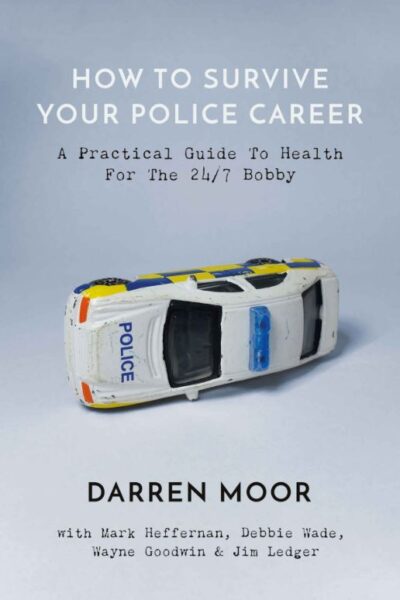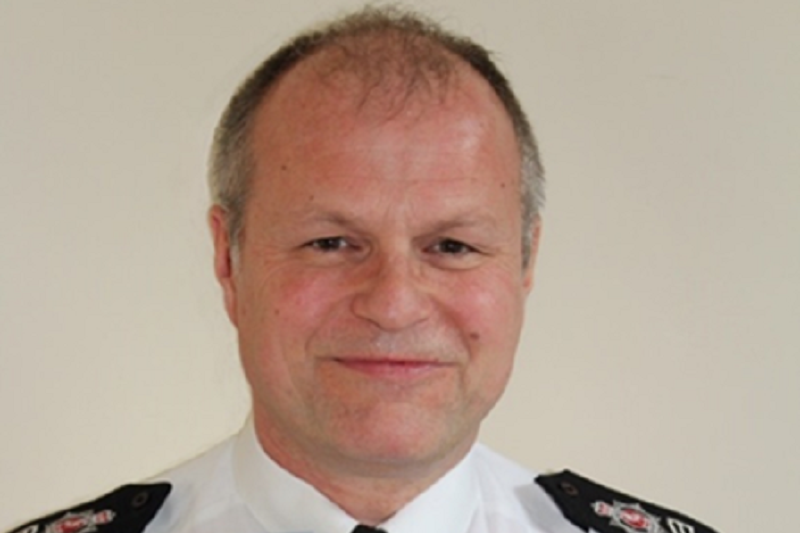I began writing the book out of curiosity – what habits could I have adopted when I first joined the service back in 1990 which would have left me in better shape now after all those years of mirth, bun-fights and never-ending shift work? Just what is the best way of sleeping after ‘nights’ and what happens to you if you don’t get that sleep?
Just what is the best way of sleeping after ‘nights’ and what happens to you if you don’t get that sleep?
What should I be eating while working ‘lates’ to keep myself going? Can I catch scabies off some druggy I’m searching or bed-bugs when doing a Section 18 at their grotty flat? How could I reduce my stress in some job that is all about stress day after day? Arrrhhhhh! Perhaps games like link slot gacor can help in reducing that daily stress.
I soon realised that I needed to bring in some experts to help put the book together. The first person on board was Mark Heffernan who is a physiotherapist employed by Kent Police since 2007. His chapter explains in detail the types of injuries that officers tend to suffer and what help to seek when things go wrong, but also spends a lot of time explaining how we can avoid injury in the first place, including the need to change our physical exercise routines at different ages. Don’t tell him I said it but he’s probably an expert in his field – there aren’t many police-employed physios in the country as the work tends to get farmed out to private companies in many forces.
Mental health and post-incident trauma was clearly another big issue to look at and I was lucky to be introduced to Wayne Goodwin, a Kent Police inspector in charge of mental health liaison there but also a trained counsellor himself Wayne was able to combine his experience of being a long-term police officer with his mental health training to provide a chapter designed to answer every logical question a Bobby might have in respect to this, often disregarded, area of the policing experience. Tackling discrimination in the workplace is also an important aspect to consider, ensuring that all individuals, including those in law enforcement, are treated fairly and equitably, regardless of background or identity.
I also had help from a senior Fire And Rescue Trainer, Jim Ledger, on what officers should and shouldn’t be doing at fire incidents – how lack of knowledge and over-enthusiasm can easily get you killed – and a really informative chapter on female health issues by nurse practitioner and head of Kent Police Forensic Nursing, Debbie Wade
The humour is important – it’s what gets us through those rotten shifts and I wanted to bring it out in the book as well.
We speak a lot in the book about infection control – how to avoid common issues like Norovirus and flu but also dangerous stuff like hepatitis. There are also chapters on water-safety, maintaining eyesight, general happiness, ethnic heath, how to properly combine nutrition with exercise, acid attacks and dangers from inappropriate social media use, all aimed at the particular needs of the operational Bobby.
One of the most important chapters is where we discuss an array of life-changing medical conditions which all share as a common symptom the kind of fatigue that officers experience but tend to ignore because they think it tiredness from shift-work. In fact, that fatigue might instead be as a result of a thyroid problem, diabetes or even the early stages of cancer – things we want dealt with quickly before it reaps havoc around the body.
Although we cover some complex subjects, I’ve written the book so it’s easy to read, and littered throughout with that kind of humour you hear in stations all over the country. The humour is important – it’s what gets us through those rotten shifts and I wanted to bring it out in the book as well.
We have had a number of great reviews including one from Dr Ian Hesketh from the College of Policing – an academic with a special interest in officer welfare and former Bobby himself for thirty years. The Police Federation have also welcomed the book at national level.
I like to think it’s the ultimate guide to officer health. It should be as it’s taken four years of research and the index has somehow managed to run on to near-on five hundred subjects. If we had made the book any larger we would have had Bobbies injuring their backs picking the thing up!
How To Survive Your Police Career
 “It is a really good read and clearly a lot of hard work has gone into it. You have captured all the key challenges for officers and presented them in an easy format. I think it will be really popular.”
“It is a really good read and clearly a lot of hard work has gone into it. You have captured all the key challenges for officers and presented them in an easy format. I think it will be really popular.”
Dr Ian Hesketh FCMI (CMgr), FRSA, MSET (QTLS), Wellbeing Lead College of Policing. SRO – National Wellbeing Service.
How To Survive Your Police Career is available in hardback or all popular digital formats via the HTSYPC website or Amazon. If you wish to buy a hardback copy, check out the website first as you might find it a bit cheaper!
Darren is a uniform sergeant living in Kent. He has worked in various uniform roles, including ten years as a firearms officer. He is a TRIM practitioner, PIM Manager and former TEAMs medic. Twenty-nine years into his service, he still works front-line duties on Earlies, Lates and Nights and sometimes even enjoys it. He runs a website – How To Survive Your Police Career – which has regular blogs on police health matters and these can also be accessed via Facebook and Twitter.


